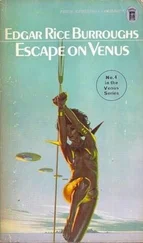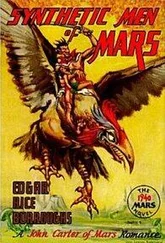Edgar Burroughs - Pirates of Venus
Здесь есть возможность читать онлайн «Edgar Burroughs - Pirates of Venus» весь текст электронной книги совершенно бесплатно (целиком полную версию без сокращений). В некоторых случаях можно слушать аудио, скачать через торрент в формате fb2 и присутствует краткое содержание. Жанр: Фантастика и фэнтези, на английском языке. Описание произведения, (предисловие) а так же отзывы посетителей доступны на портале библиотеки ЛибКат.
- Название:Pirates of Venus
- Автор:
- Жанр:
- Год:неизвестен
- ISBN:нет данных
- Рейтинг книги:4 / 5. Голосов: 1
-
Избранное:Добавить в избранное
- Отзывы:
-
Ваша оценка:
- 80
- 1
- 2
- 3
- 4
- 5
Pirates of Venus: краткое содержание, описание и аннотация
Предлагаем к чтению аннотацию, описание, краткое содержание или предисловие (зависит от того, что написал сам автор книги «Pirates of Venus»). Если вы не нашли необходимую информацию о книге — напишите в комментариях, мы постараемся отыскать её.
Pirates of Venus — читать онлайн бесплатно полную книгу (весь текст) целиком
Ниже представлен текст книги, разбитый по страницам. Система сохранения места последней прочитанной страницы, позволяет с удобством читать онлайн бесплатно книгу «Pirates of Venus», без необходимости каждый раз заново искать на чём Вы остановились. Поставьте закладку, и сможете в любой момент перейти на страницу, на которой закончили чтение.
Интервал:
Закладка:
My calculations suggested that in about three hours from the take-off the torpedo would be moving almost directly toward Mars; and from time to time I took observations through the wide-angle telescopic periscope that is mounted flush with the upper surface of the torpedo's shell, but the results were not entirely reassuring. In two hours Mars was dead ahead—the arc of the trajectory was not flattening as it should. I became apprehensive. What was wrong? Where had our careful computations erred?
I left the periscope and gazed down through the main keel port. Below and ahead was the Moon, a gorgeous spectacle as viewed through the clear void of space from a distance some seventy-two thousand miles less than I had ever seen it before and with no earthly atmosphere to reduce visibility. Tycho, Plato, and Copernicus stood out in bold relief upon the brazen disc of the great satellite, deepening by contrast the shadows of Mare Serenitatis and Mare Tranquilitatis. The rugged peaks of the Apennine and the Altai lay revealed as distinctly as I had ever seen them through the largest telescope. I was thrilled, but I was distinctly worried, too.
Three hours later I was less than fifty-nine thousand miles from the Moon; where its aspect had been gorgeous before, it now beggared description, but my apprehension had cause to increase in proportion; I might say, as the square of its increasing gorgeousness. Through the periscope I had watched the arc of my trajectory pass through the plane of Mars and drop below it. I knew quite definitely then that I could never reach my goal. I tried not to think of the fate that lay ahead of me; but, instead, sought to discover the error that had wrought this disaster.
For an hour I checked over various calculations, but could discover nothing that might shed light on the cause of my predicament; then I switched off the lights and looked down through the keel port to have a closer view of the Moon. It was not there! Stepping to the port side of the cabin, I looked through one of the heavy circular glasses out into the void of space. For an instant I was horror stricken; apparently just off the port bow loomed an enormous world. It was the Moon, less than twenty-three thousand miles away, and I was hurtling toward it at the rate of thirty-six thousand miles an hour!
I leaped to the periscope, and in the next few seconds I accomplished some lightning mental calculating that must constitute an all-time record. I watched the deflection of our course in the direction of the Moon, following it across the lens of the periscope, I computed the distance to the Moon and the speed of the torpedo, and I came to the conclusion that I had better than a fighting chance of missing the great orb. I had little fear of anything but a direct hit, since our speed was so great that the attraction of the Moon could not hold us if we missed her even by a matter of feet; but it was quite evident that it had affected our flight, and with this realization came the answer to the question that had been puzzling me.
To my mind flashed the printer's story of the first perfect book. It had been said that no book had ever before been published containing not a single error. A great publishing house undertook to publish such a book. The galley proofs were read and reread by a dozen different experts, the page proofs received the same careful scrutiny. At last the masterpiece was ready for the press—errorless! It was printed and bound and sent out to the public, and then it was discovered that the title had been misspelled on the title page. With all our careful calculation, with all our checking and rechecking, we had overlooked the obvious; we had not taken the Moon into consideration at all.
Explain it if you can; I cannot. It was just one of those things, as people say when a good team loses to a poor one; it was a break , and a bad one. How bad it was I did not even try to conjecture at the time; I just sat at the periscope watching the Moon racing toward us. As we neared it, it presented the most gorgeous spectacle that I have ever witnessed. Each mountain peak and crater stood out in vivid detail. Even the great height of summits over twenty-five thousand feet appeared distinguishable to me, though imagination must have played a major part in the illusion, since I was looking down upon them from above.
Suddenly I realized that the great sphere was passing rapidly from the field of the periscope, and I breathed a sigh of relief—we were not going to score a clean hit, we were going to pass by.
I returned then to the porthole. The Moon lay just ahead and a little to the left. It was no longer a great sphere; it was a world that filled my whole range of vision. Against its black horizon I saw titanic peaks; below me huge craters yawned. I stood with God on high and looked down upon a dead world.
Our transit of the Moon required a little less than four minutes; I timed it carefully that I might check our speed. How close we came I may only guess; perhaps five thousand feet above the tallest peaks, but it was close enough. The pull of the Moon's gravitation had definitely altered our course, but owing to our speed we had eluded her clutches. Now we were racing away from her, but to what?
The nearest star, Alpha Centauri, is twenty-five and a half million million miles from earth. Write that on your typewriter—25,500,000,000,000 miles. But why trifle with short distances like this? There was little likelihood that I should visit Alpha Centauri with all the wide range of space at my command and many more interesting places to go. I knew that I had ample room in which to wander, since science has calculated the diameter of space to be eighty-four thousand million light years, which, when one reflects that light travels at the rate of one hundred eighty-six thousand miles a second, should satisfy the wanderlust of the most inveterate roamer.
However, I was not greatly concerned with any of these distances, as I had food and water for only a year, during which time the torpedo might travel slightly more than three hundred fifteen million miles. Even if it reached our near neighbor, Alpha Centauri, I should not then be greatly interested in the event, as I should have been dead for over eighty thousand years. Such is the immensity of the universe!
During the next twenty-four hours the course of the torpedo nearly paralleled the Moon's orbit around the earth. Not only had the pull of the Moon deflected its course, but now it seemed evident that the earth had seized us and that we were doomed to race through eternity around her, a tiny, second satellite. But I did not wish to be a moon, certainly not an insignificant moon that in all probability might not be picked up by even the largest telescope.
The next month was the most trying of my life. It seems the height of egotism even to mention my life in the face of the stupendous cosmic forces that engulfed it; but it was the only life I had and I was fond of it, and the more imminent seemed the moment when it should be snuffed out, the better I liked it.
At the end of the second day it was quite apparent that we had eluded the grip of the earth. I cannot say that I was elated at the discovery. My plan to visit Mars was ruined. I should have been glad to return to earth. If I could have landed safely on Mars, I certainly could have landed safely on earth. But there was another reason why I should have been glad to have returned to earth, a reason that loomed, large and terrible, ahead—the Sun. We were heading straight for the Sun now. Once in the grip of that mighty power, nothing could affect our destiny; we were doomed. For three months I must await the inevitable end, before plunging into that fiery furnace. Furnace is an inadequate word by which to suggest the Sun's heat, which is reputedly from thirty to sixty million degrees at the center, a fact which should not have concerned me greatly, since I did not anticipate reaching the center.
Читать дальшеИнтервал:
Закладка:
Похожие книги на «Pirates of Venus»
Представляем Вашему вниманию похожие книги на «Pirates of Venus» списком для выбора. Мы отобрали схожую по названию и смыслу литературу в надежде предоставить читателям больше вариантов отыскать новые, интересные, ещё непрочитанные произведения.
Обсуждение, отзывы о книге «Pirates of Venus» и просто собственные мнения читателей. Оставьте ваши комментарии, напишите, что Вы думаете о произведении, его смысле или главных героях. Укажите что конкретно понравилось, а что нет, и почему Вы так считаете.









